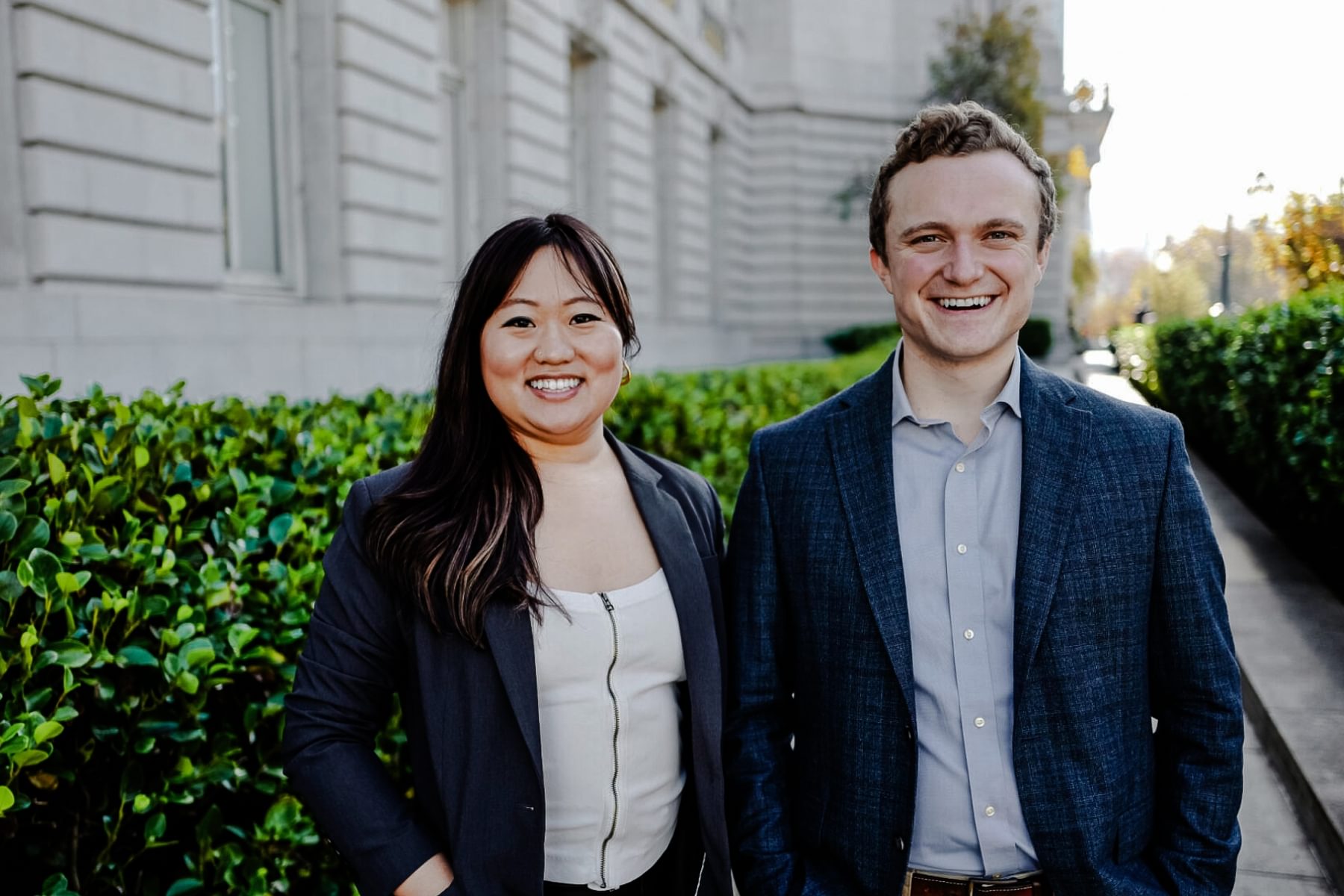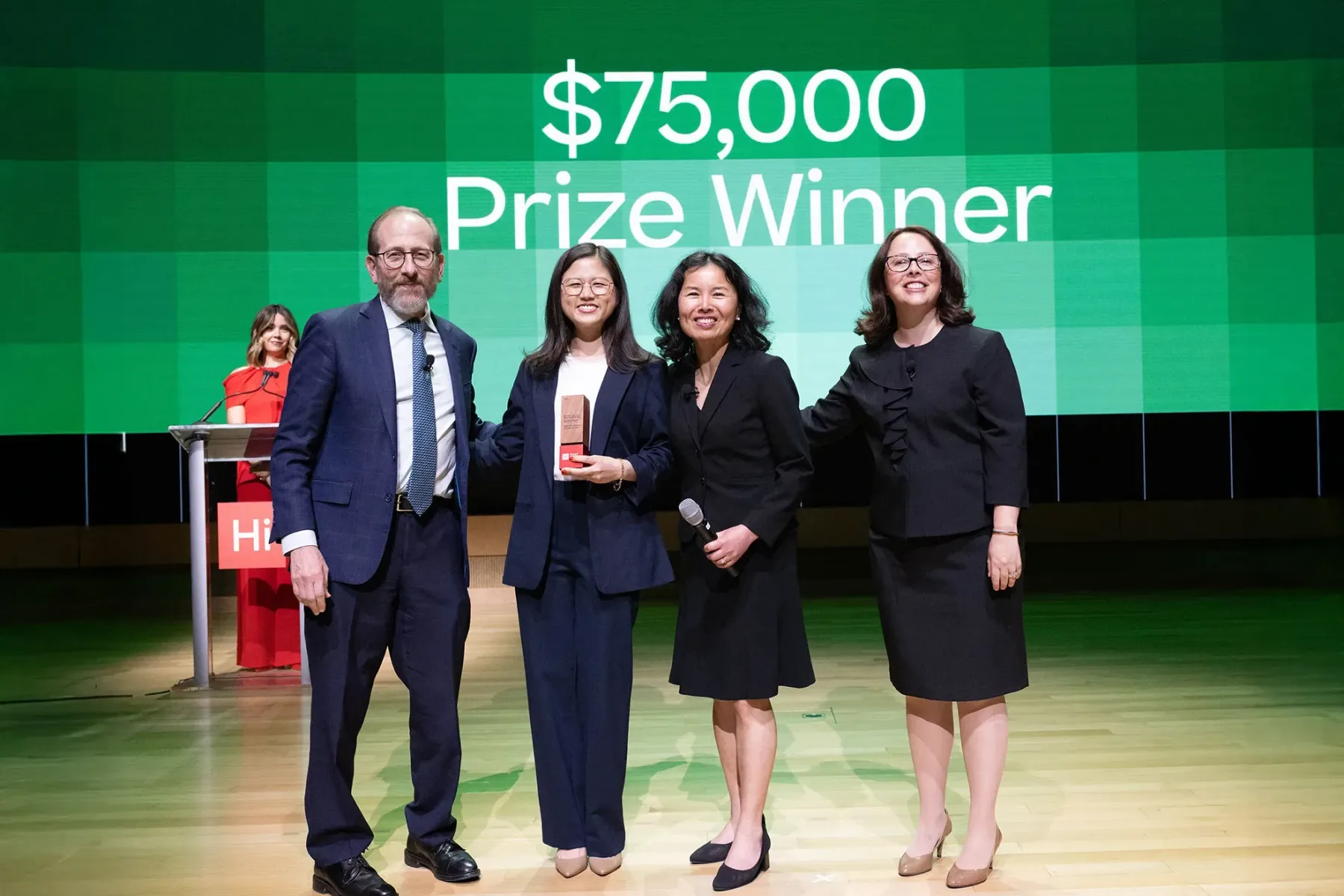Transitioning to clean energy is a top priority for federal, state, and local governments across the US. But many of the clean energy solutions on the market today, like solar panels, are designed for single family homes. The 100+ million Americans who live in multifamily housing have few, if any, options for accessing clean energy, says Tony Keslinke (HES '24), founder of Veritel Energy.
To address this issue, Veritel Energy has developed a platform that transforms the renewable energy landscape for multifamily residences, giving tenants direct access to renewables. Over the last couple of years, Veritel Energy has grown from a classroom project to a full-scale venture. The company was awarded a prestigious Small Business Innovation Research grant from the U.S. Department of Energy in 2023, received funding from the Social Impact Fellowship Fund the same year, and recently installed its first multi-family housing pilot.
According to Keslinke, a big reason for the company’s progress is the relationship he built with mentor Frank Yang, an expert on energy and sustainability. Keslinke and Yang first met through the Student i-lab Mentor Match program in fall 2022, and remain connected today.
We recently spoke with Keslinke and Yang about how i-lab members can make the most out of the Mentor Match program, and mentorship in general, advance their ventures.
Do your homework
During the virtual Mentor Match, event founders have 10-minute conversations with multiple mentors. After the event, founders and mentors rank their top choices, and the i-lab takes these rankings into consideration when pairing mentors and mentees.
Given the very brief nature of these initial conversations, Keslinke says it’s important to review the mentor bios that the i-lab provides before the event. “I went through them all and noted who I really wanted to be [matched] with.” Going into the event, "Frank was my number one pick, without a doubt,” says Keslinke, and their initial conversation “just confirmed that Frank had the right skill set and knowledge base.”
Understand what a mentor is — and isn’t
“Do not think of a mentor as a teammate,” says Keslinke. “They’re not going to execute on something — they’re going to give you information so you and your team can execute.”
Keslinke also cautioned against asking mentors for money, saying, “If you’re looking to them to write a check, you’re doing yourself a disservice... You’re going to alienate mentors in general if that’s how you’re viewing the program."
Instead, view mentors as advisors — industry experts that can give founders practical advice on how they can move their ventures forward. For example, Yang’s in-depth knowledge about the renewable energy industry enabled him to point out strengths and “potential holes” in Veritel’s model. He also offered what Keslinke describes as “brilliant” guidance on how to secure nondilutive grant funding from government and universities, which helped the team prepare for their SBIR grant application.
Yang doesn’t take credit, though, adding, “Credit to Anthony for getting that funding and getting the company off the ground without a more traditional funding path. It’s been amazing to watch.”
"Do not think of a mentor as a teammate. They're not going to execute — they're going to give you information." — Tony Keslinke
Actively manage the relationship
The Mentor Match program is only one semester long, so it’s important to stay organized and proactive, says Keslinke. "You have to be crystal clear on what your expectations are and what you’d like to get out [of the mentorship] because the semester is short, and it goes very quickly. You need to hit the ground running, and then set this tempo or rhythm where you’re doing your work. You’ve got to come to that meeting prepared with what you’ve accomplished and what you want to probe or discuss. Then, take that information, process it, and then come to the next meeting and move the ball just a bit further.”
Yang adds that Keslinke is “really good at being consistent and following up and asking smart questions.”
In terms of the number of meetings, Keslinke recommends trying to schedule at least six, if your mentor is willing. However, if you do get that many, Keslinke recommends “respecting the time and being organized. Set it up for 15 minutes if that’s all you need.”
"Get to know the people. Rub shoulders...The i-lab is one of the few places [at] the University where there is this cross-pollination from all the different schools." — Tony Keslinke
Access all of the i-lab's resources
“You get out of the i-lab what you put into it,” says Keslinke. Mentor Match is just one of many i-lab programs that Keslinke recommends to fellow founders.
“Get to know the people. Rub shoulders...The i-lab is one of the few places [at] the University where there is this cross-pollination from all the different schools. It's hard at the University, for instance, for an Extension School student to ever interact with a medical student or a law student or an engineering student, but at the i-lab, that happens seamlessly.”





